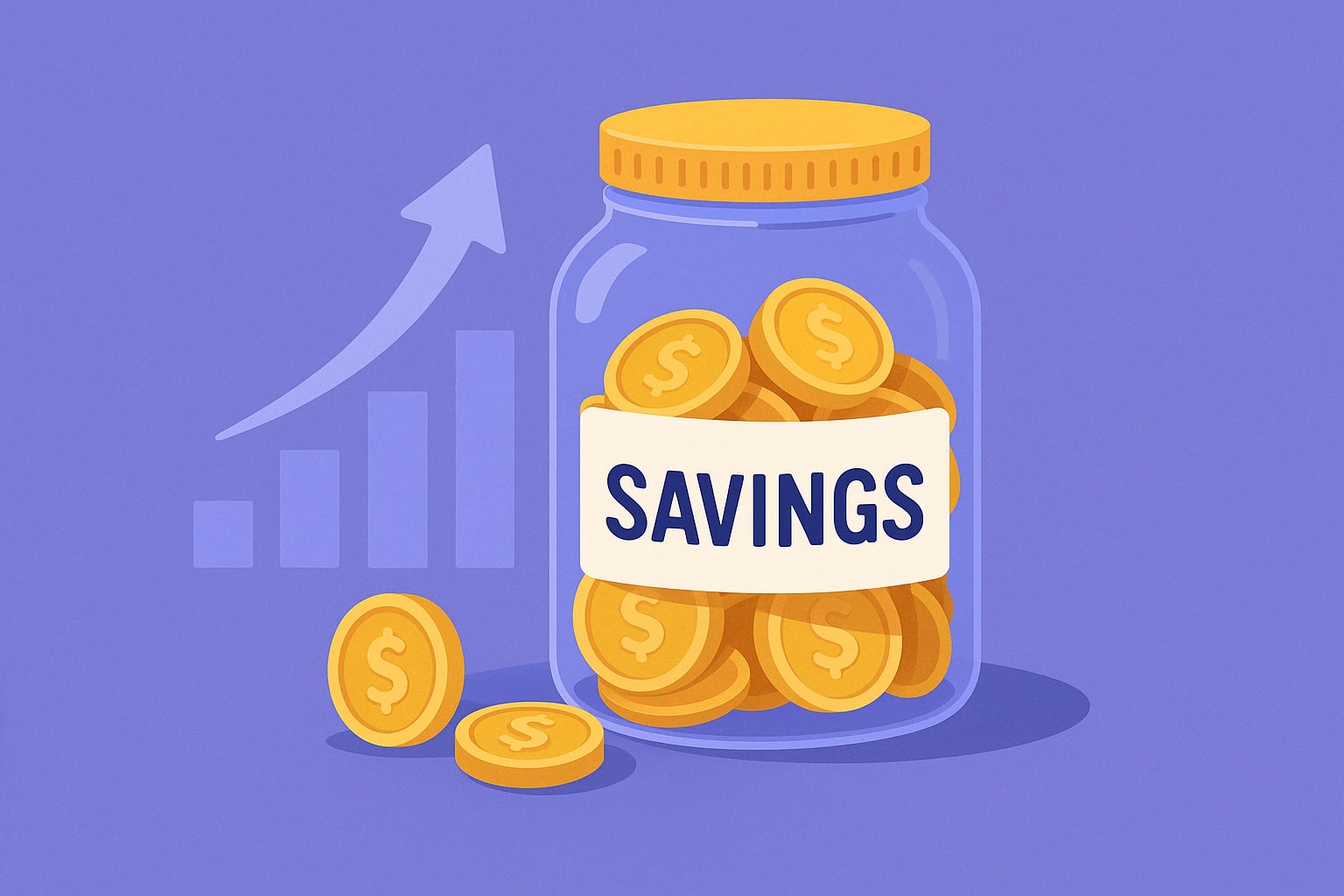High-Yield Savings Accounts Explained: Make Your Cash Work Harder (Safely)

High-Yield Savings Accounts Explained: Make Your Cash Work Harder (Safely)
You're saving money – maybe for an emergency fund, a down payment, or that dream trip. That's awesome! But is your cash just sitting in a regular savings account, earning next to nothing? If so, you're likely missing out on free money. Enter the High-Yield Savings Account (HYSA) – a simple, safe way to make your savings actually grow.
Let's break down what HYSAs are and why they should be a key part of your financial toolkit.
What Exactly is a High-Yield Savings Account (HYSA)?
Think of an HYSA as a supercharged version of a standard savings account. Its main superpower? It offers a significantly higher interest rate on your deposits. This rate is typically expressed as the Annual Percentage Yield (APY), which reflects the total amount of interest you'll earn in a year, including the effect of compounding (interest earning interest).
These accounts are most often offered by online banks or the online divisions of larger banks. Because they don't have the overhead costs of physical branches, they can pass those savings onto customers in the form of much better interest rates.
HYSA vs. Traditional Savings: What's the Big Difference?
The single biggest difference is the interest rate (APY).
- Traditional Savings Accounts: Often found at big brick-and-mortar banks, these typically offer very low interest rates. As of early 2025, the national average APY for traditional savings accounts hovers around a mere 0.4% to 0.6%. That means $1,000 saved might earn you just $4-6 in interest over an entire year.
- High-Yield Savings Accounts (HYSAs): Thanks to lower overhead, HYSAs consistently offer much higher rates. As of April 2025, it's common to find HYSAs offering APYs above 4.00%, with some even reaching 4.50% or slightly higher! That same $1,000 could potentially earn $40-$46+ in interest annually – a huge difference, especially as your balance grows.
Key Benefits of Using an HYSA
- Earn Significantly More Interest: This is the main draw. Your money works harder for you, passively growing much faster than in a traditional account.
- Safety: Worried about online banks? Don't be. Reputable HYSAs from banks are FDIC-insured (or NCUA-insured if from a credit union). This means your deposits are protected by the federal government up to $250,000 per depositor, per insured institution, per ownership category, even if the bank fails. It's just as safe as a traditional bank account.
- Accessibility: Your money is still liquid, meaning you can access it when you need it (perfect for emergency funds!). Transfers usually happen online and might take 1-3 business days. Some HYSAs may offer ATM cards, but many rely on electronic transfers.
- Low or No Fees/Minimums: Many top HYSAs have no monthly maintenance fees and no (or very low) minimum balance requirements to open an account or earn the stated APY. Always check the specific account details, though!
Finding the Right HYSA (as of April 2025)
APYs on HYSAs are variable and can change based on market conditions, so it's always good to shop around. Look for a combination of a competitive APY, no monthly fees, low/no minimum balance requirements, and ensure it's FDIC/NCUA insured.
Here are a few examples of banks consistently offering competitive rates as of April 2025 (check their current rates and terms before applying, as these can change!):
- Pibank: Often cited with rates around 4.60% APY, typically with no minimum deposit.
- Bask Bank: Rates often around 4.35% APY, usually with no minimum deposit.
- Bread Savings: Rates often around 4.40% APY, typically requiring a low minimum deposit (e.g., $100).
- EverBank (formerly TIAA Bank): Rates often around 4.30% APY, usually with no minimum deposit.
- Marcus by Goldman Sachs: Often competitive rates (check current), usually no minimum deposit or fees.
- Capital One 360 Performance Savings: Often offers competitive rates (check current), typically no fees or minimums, and has some physical locations (Cafes).
Disclaimer: This is not an exhaustive list, and rates/terms are subject to change. Do your own research for the most current offers.
The Bottom Line
If you have cash savings – especially an emergency fund – sitting in a low-interest traditional savings account, you're leaving money on the table. Switching to an FDIC-insured High-Yield Savings Account is a simple, safe, and smart move to make your money grow faster without taking on investment risk. Take a few minutes to compare current offers and make the switch today!
Disclaimer:
The information provided in this article is for informational and educational purposes only and does not constitute financial, investment, legal, or tax advice. The content is based on sources believed to be reliable, but the author and publisher make no representations or warranties as to its accuracy, completeness, or timeliness.
The author is not a licensed financial advisor, registered investment adviser, or broker-dealer. You should consult with qualified professionals (such as a Certified Financial Planner®, accountant, or attorney) who can assess your individual situation before making any financial decisions or taking any action based on the information presented here.
Investing involves risk, including the possible loss of principal. Past performance is not indicative of future results. Any examples or discussions of specific investments, strategies, or products are for illustrative purposes only and are not endorsements or recommendations.
Financial markets and regulations change frequently, and the information in this article may become outdated. We are not obligated to update any information herein. Your financial situation is unique, and any decisions you make should be based on your own research, due diligence, and consultation with professional advisors, considering your personal objectives, risk tolerance, and financial circumstances. Reliance on any information provided in this article is solely at your own risk.
Stay Ahead with Our Newsletter
Get exclusive financial insights, market analysis, and expert tips delivered directly to your inbox.